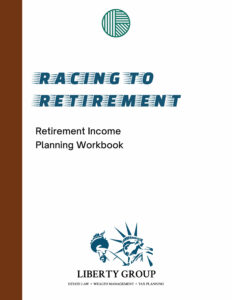How to Choose the Right Investment Advisor for Your Retirement
Retirement planning is a critical step that often goes overlooked or mishandled, even by those who invest in high-priced advisors. The reality is that choosing the right investment advisor isn’t just about hiring someone with impressive credentials or taking a recommendation from a friend; it’s about finding a partner who understands your unique financial landscape. Without proper guidance, the consequences can be costly and long-lasting, underscoring the need for careful consideration.
Difference Between an Investment Advisor and a Financial Advisor
We should first distinguish the difference between an investment advisor and a financial advisor.
An investment advisor is a fiduciary who provides advice on securities and manages investment portfolios, typically charging fees based on assets under management. A fiduciary is an individual or organization legally and ethically bound to act in the best interests of another party, typically in financial or legal contexts. Fiduciaries have a duty to prioritize their client’s needs above their own. For example, an advisor acting as a fiduciary must recommend investment products that align with their client’s financial goals, even if those recommendations yield less compensation for the advisor.
In contrast, the term financial advisor is more generic and refers to an individual who offers broader financial planning services, including retirement, tax, and estate planning, and may earn fees, commissions, or both. Financial advisors are held to the suitability standard, a more lax requirement than the fiduciary standard investment advisors are held to, though some financial advisors may also be fiduciaries. The suitability standard requires financial advisors to provide advice that is “suitable” for their clients.
It’s crucial to understand which type of advisor you’re working with before making your decision.
The Pitfalls of Poor Advice and No Advice at All
A common challenge many people face is entrusting their investment future to advisors who may not be fully aligned with their needs and goals. In other cases, people bypass professional advice altogether, assuming their assets will manage themselves or that they can handle their investments on their own. Both approaches can lead to significant missteps, such as undervaluing your savings or retirement accounts. While it’s understandable to want to save money on advisory fees, the absence of knowledgeable guidance can result in missed opportunities and unachieved investment goals.
Taking the time to develop a comprehensive retirement plan and seeking informed, professional help can make an impactful difference in your investment journey. Further, having a well-thought-out strategy, guided by the right professional, enhances your ability to make informed decisions about your financial future.
Finding the Right Investment Advisor: Avoiding Common Mistakes
The search for an investment advisor can feel overwhelming, especially given the demands of daily life. Many people make hasty decisions, such as hiring the first advisor they meet or choosing someone based solely on a recommendation from a friend or family member. Worse, some opt for a family member or friend as their advisor, blurring the lines between professional judgment and personal relationships. These shortcuts can lead to unsatisfactory experiences and underwhelming results.
A thoughtful approach to finding the right advisor begins with understanding your own needs and doing your due diligence. This includes interviewing multiple advisors, examining their experience, and ensuring they are registered with relevant regulatory bodies. By carefully evaluating how they communicate and collaborate with other professionals, such as tax and legal consultants, you can gain a better sense of their ability to manage your comprehensive financial needs.
The Importance of a Holistic Approach to Financial Planning
An investment advisor does more than manage your investment portfolio; they help integrate your retirement strategy with other critical areas, including tax planning and legal considerations. This collaborative approach can be particularly valuable when making complex decisions about your retirement, ensuring that all pieces of your investment puzzle fit together seamlessly.
The best advisors prioritize clear communication and transparency, working alongside you to craft a sound, long-term retirement plan. They should be willing to discuss how they will coordinate with other professionals and be committed to your investment well-being, not just your portfolio’s growth. This partnership model helps create a retirement strategy that is as robust and well-rounded as possible.
The True Cost of Investment Advice: A Worthwhile Investment
A common hesitation when hiring an investment advisor revolves around cost. However, when viewed in the context of your long-term financial health, the expense can be seen as an essential investment rather than an unnecessary cost. After all, your retirement savings and income represent your livelihood for a significant portion of your life. Investing now in professional advice may help protect and grow your assets in ways you might not achieve on your own.
Keep in mind that the most expensive advisor isn’t necessarily the best, and the cheapest option may not provide the quality of service you need. Pricing should be just one part of a thorough evaluation process that includes research, interviews, and a close look at the advisor’s track record. The key is to select an investment advisor who not only meets your criteria but also demonstrates a commitment to helping you navigate your retirement journey actively and thoughtfully.
Conclusion: Take Control of Your Retirement Planning
Choosing an investment advisor is one of the most important decisions you can make for your financial future. By investing time in finding the right advisor, you set the stage for a more informed and confident approach to your retirement planning. Remember, the goal isn’t to find the most expensive or the most convenient advisor, but rather the one who aligns with your needs and priorities.

